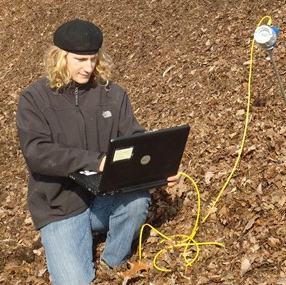 Plant diseases, especially those caused by soil-borne seed infecting pathogens, pose a serious threat to the production of both greenhouse and field crops. Conventional farming operations often use fumigants and chemical seed treatments, which can be harmful to human health and the environment, for controlling seed and seedling pathogens. The use of many of these materials is strictly prohibited in organic agriculture, limiting the options for organic farmers for plant disease control.
Plant diseases, especially those caused by soil-borne seed infecting pathogens, pose a serious threat to the production of both greenhouse and field crops. Conventional farming operations often use fumigants and chemical seed treatments, which can be harmful to human health and the environment, for controlling seed and seedling pathogens. The use of many of these materials is strictly prohibited in organic agriculture, limiting the options for organic farmers for plant disease control.Organic amendments such as compost and vermicompost are used as alternatives to synthetic control methods due, in part, to their success in controlling plant pathogens. Previous studies have confirmed consistent disease suppression using solid and liquid forms of organic amendments and the working hypothesis is that microbes are closely associated with suppression. Furthermore, only a subset of microbes from the bulk material that colonize the seed coat are responsible for disease suppression. So if the specific subset of microbes associated with seed colonization and suppression can be deployed as a seed treatment, can we still achieve plant protection from soil-borne pathogens? In addition, can this seed treatment application be developed for organic production as an effective tool for disease management?
The goal of this project is to establish a proof-of-concept that compost and vermicompost microbes can be applied to the surface of seeds before sowing to protect against soil-borne plant pathogens. Liquid extracts will be produced from solid materials, freeze-dried to a powder form, and applied to the seed coat. Treated seeds will first be evaluated for disease suppression under laboratory conditions, and then tested for use on certified organic land. The information generated from this project has the potential to introduce a novel seed-treatment application for controlling plant pathogens in organic production systems.
